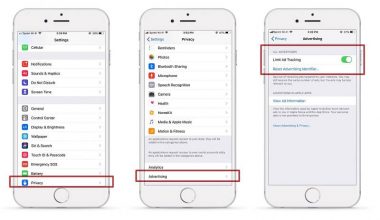An IP address is a unique identifier for the device you use to access a network or the internet. An IP address can be likened to a house address. Your online activities can likewise be tracked by tracking your IP address.
Virtual Private Network (VPN) is a tool that is used to mask your original IP address when you’re browsing the internet. A VPN helps users to bypass internet restrictions based on location by tricking the browser to believe that it is being accessed from a location that has not been blacklisted. VPNs are sometimes used for security purposes (to hide a user’s IP address while they are online so the user can not be tracked easily).
Although VPNs are great internet security tools but they have their downside. You might feel that using a VPN completely obscures your IP address but even the most sophisticated VPN is prone to IP leaks. More often than not, these IP address leaks are as a result of some features in your browser –a flaw that is easy to exploit. Some websites make use of WebRTC (Web Real-Time Communication) and a few lines of code to detect real IP addresses. This article will walk you through steps on how to check if your VPN is leaking your IP address.
What is an IP Address Leak?
Simply put, an IP address is leaked when a user’s real IP address can be detected while connected to a VPN service. This can happen when a user’s computer is accessing default servers unknowingly rather than via the anonymous VPN servers. An IP leak can happen anytime but most VPN providers have upgraded their software to reduce the occurrence of IP leaks to the barest minimum. Normally, IP leaks are caused by flaws in technology like web browser features or browser plug-ins.
Types of VPN leaks
Listed below are the most common ways your VPN could be leaking your IP address and exposing your private information.
- Dropped Connection: A dropped connection is said to occur when your VPN disconnects abruptly. When this occurs, all your web traffic will be immediately routed through your normal Internet connection. This is the most common IP address leak. Dropped Connection can easily be prevented by selecting a VPN with a kill-switch feature.
- WebRTC Leak: Web Real-Time Communication (WebRTC) is a built-in feature for most popular browsers (Chrome, Firefox, Opera and others). It enables real-time communications such as voice calls, file sharing, video chats and more. However, some websites can take advantage of WebRTC by easily imputing a few lines of code to bypass your VPN and detect your original IP address. This feature is used by websites that block content based on geo-location.
- IP Address Leak: If you are connected to a VPN and the browser still detects your original IP address, that’s an IP leak. IP leaks usually happen due to incompatibility with two internet protocols, IPv4 and IPv6. Some VPN services can only process IPv4 requests while they ignore IPv6 requests. If your Internet Service Provider makes use of IPv6 while IPv6 requests are being ignored by your VPN service, your VPN connection is probably leaking your original location and other sensitive data.
- DNS Leak: Sometimes your IP address might be securely hidden by your VPN while your DNS address secretly exposes your location. Here’s how it works – the DNS server converts plain text URLs into numerical IP addresses. This conversion process is usually handled by your ISP and their servers if you’re not using a VPN. This process enables your internet service provider to see websites you have visited. Technically, if your DNS leaks, anyone monitoring your traffic will be able to access this information too which could lead to a DNS hijacking attack.
It is possible to prevent these leaks, but first, they have to be identified. Outlined below are steps on how to check if your VPN is leaking your IP address.
How to Check for IP Address Leaks
Are you certain your VPN is doing its job? Your identity and location might be leaked by your VPN while you think that you are completely secure. Instead of assuming, use these tips listed below to check if your VPN is leaking your IP address.
- Check your Original IP Address
- Ensure that your VPN is not active.
- If you are sure that your VPN is not connected, head over to Google and type “what is my IP address” to check your original IP address.
- Write out your IP address.
- Sign in to your VPN
- Sign in to your VPN account
- Connect to any server of your choice.
- Verify that your VPN is connected.
- Check your IP Address again
- Visit google.com
- Type “what is my IP address” again to check your new IP address.
- Go to Roseler’s WebRTC text page and write the IP address displayed on the page.
If your VPN is not leaking your IP address, you will see a new IP address – one that tallies with the VPN server and country you selected. However, if the WebRTC test displays your original IP address, then your browser is leaking your ISP-provided address.
4. Do an IP Address Leak test: Numerous free websites allow you check if your VPN is leaking your IP address. There are good tools for IP Leak tests with regards to user’s online privacy in a few clicks.
The easiest way to solve an IP leak is to change your VPN provider to one that offers protection against DNS leaks or has dedicated DNS Servers. RitaVPN on the other hand, is reputable for its secure encryption against DNS leaks; therefore, you are provided against all forms of internet monitoring technologies.
You could also turn off IPv6 manually on your device, use a browser that doesn’t have WebRTC installed, disable WebRTC in your browser or install browser extensions.
In summary, IP leaks could either happen through technological flaws or by the usage of substandard VPNs. IP leaks could be dangerous and post a threat to online user privacy. If you are affected by an IP leak, you might think you are protecting your sensitive data while you’re exposed. Hopefully, this post has given you a better insight on how to check if your VPN is leaking your IP address.






